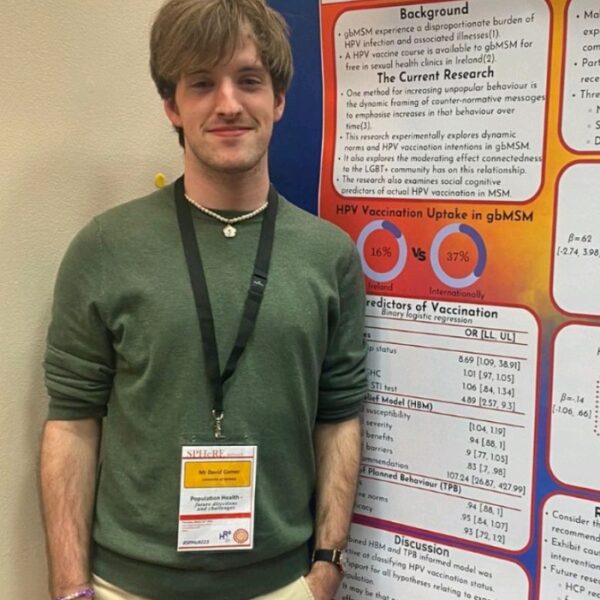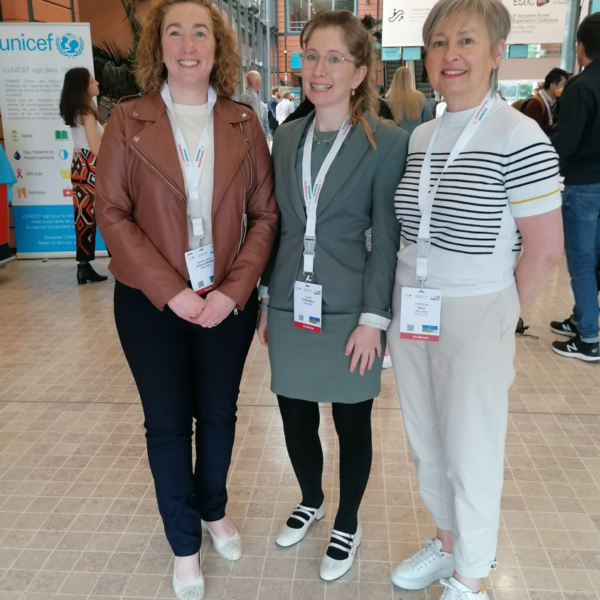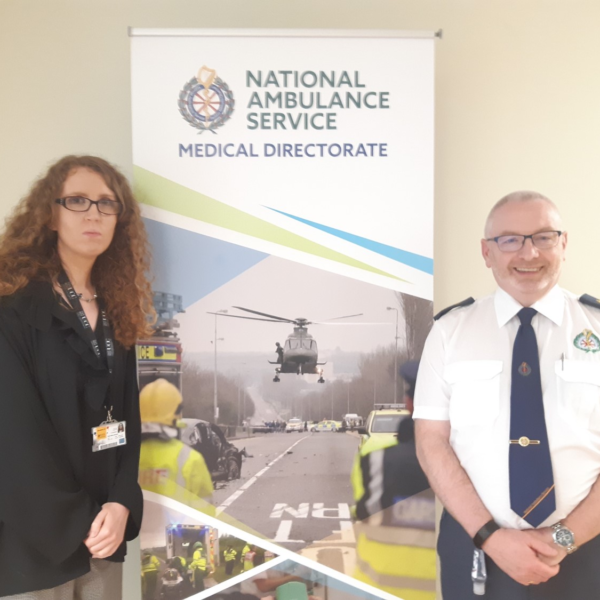SPHeRE Scholar Rebecca Trower My name is Rebecca Trower, and I am a Year 2 SPHeRE scholar based in the University of Galway. I have a background in Health Psychology, and I’m interested in behaviour change interventions aimed at improving patient outcomes in relation to their physical health. My […]
SPHeRE Blog
Health Technology Management in Ireland: Learnings from a National Placement by David Aluga
SPHeRE Scholar David Aluga In May 2024, I began an eight-week national placement at the Medicines Management Programme (MMP), one of the first-year milestones of the Structured Population health, Policy and Health-services Research Education (SPHeRE) PhD Programme. The SPHeRE Programme is a national doctoral training Programme in Population Health, Policy […]
Exchanging research: An international work placement at the Suicidal Behaviour Research Laboratory (SBRL), University of Glasgow by David McEvoy
My name is David McEvoy and I am a SPHeRE PhD scholar based at the Royal College of Surgeons in Ireland (RCSI) in Dublin. My PhD focuses on the epidemiology of self-harm in young people – in particular, on the pathways to self-harm and suicidal behaviour in adolescents […]
The Benefits of Collaboration during a PhD – by James Larkin
A PhD is often thought of as a solitary pursuit. What is underestimated is the key role that collaboration plays in the PhD process. In this blog, I will explore how collaboration can enrich a PhD experience, help broaden one’s perspectives, and improve the quality of PhD research. My PhD […]
From Academia to the Community: A SPHeRE National Placement with the MPOWER Programme – by David Comer
My name is David Comer and I’m a SPHeRE Scholar based in the University of Galway, Ireland. My health psychology PhD focuses on the delivery of a medication called HIV PrEP – short for pre-exposure prophylaxis – that can be taken by people who don’t have HIV to prevent the […]
Enhancing Collaboration: Using a Design Sprint to maximise stakeholder engagement at a Symposium – by Geraldine O’Callaghan, Patricia Hall, Deirdre McCartan, Clare Fitzgerald, PhD Scholars, iPASTAR CDA
The annual iPASTAR (improving Pathways for Acute Stroke and Rehabilitation) Symposium offers the iPASTAR CDA scholars and their supervisors the opportunity to learn from field leaders in Irish stroke research while also showcasing the scholars’ research outputs and future research goals to interdisciplinary colleagues similarly interested in improving patient care, […]
Implementation of Menu Labelling Policies: Opportunities & Challenges – by Dr. Claire Kerins
The rationale for menu labelling Prevention of obesity is a public health priority both globally and in Ireland. While the causes of obesity are complex and multifaceted, poor diet is a leading risk factor. Foods prepared outside the home (e.g., fast food outlets, restaurants, worksite canteens) represent increasing proportions of […]
Developing Guidance for Patient and Public Involvement in the Collaborative Doctoral Programme for Chronic Disease Prevention (CDP-CDP)
What is the CDP-CDP? The Collaborative Doctoral Programme in Chronic Disease Prevention (CDP-CDP) is a structured doctoral programme training six SPHeRE scholars to become future leaders in chronic disease research, implementation, and policy development. We are Eanna (Health Psychologist), Pauline (Dietitian), Irene (Nurse), Márcia (Health Psychologist), Clair (Physiotherapist), and Edel […]
Networking at the European Stroke Organisation Conference
Geraldine O’Callaghan, Clare Fitzgerald and Patricia Hall, three second year SPHeRE PhD scholars, who are part of the iPASTAR (improving pathways for acute stroke and rehabilitation) CDA, were delighted to represent Irish Stroke Research at this year’s European Stroke Organisation Conference (ESOC) in beautiful Lyon, France. This was a hybrid […]
A Pharmacist Amongst Paramedics – by Edel Burton
An account of a SPHeRE national placement in the National Ambulance Service Clinical Directorate Edel Burton is a second year SPHeRE Scholar and Clinical Pharmacist who carried out her SPHeRE national placement in the National Ambulance Service (NAS) Clinical Directorate, in Dooradoyle, Limerick from March-May 2022. Edel’s placement supervisor was […]











